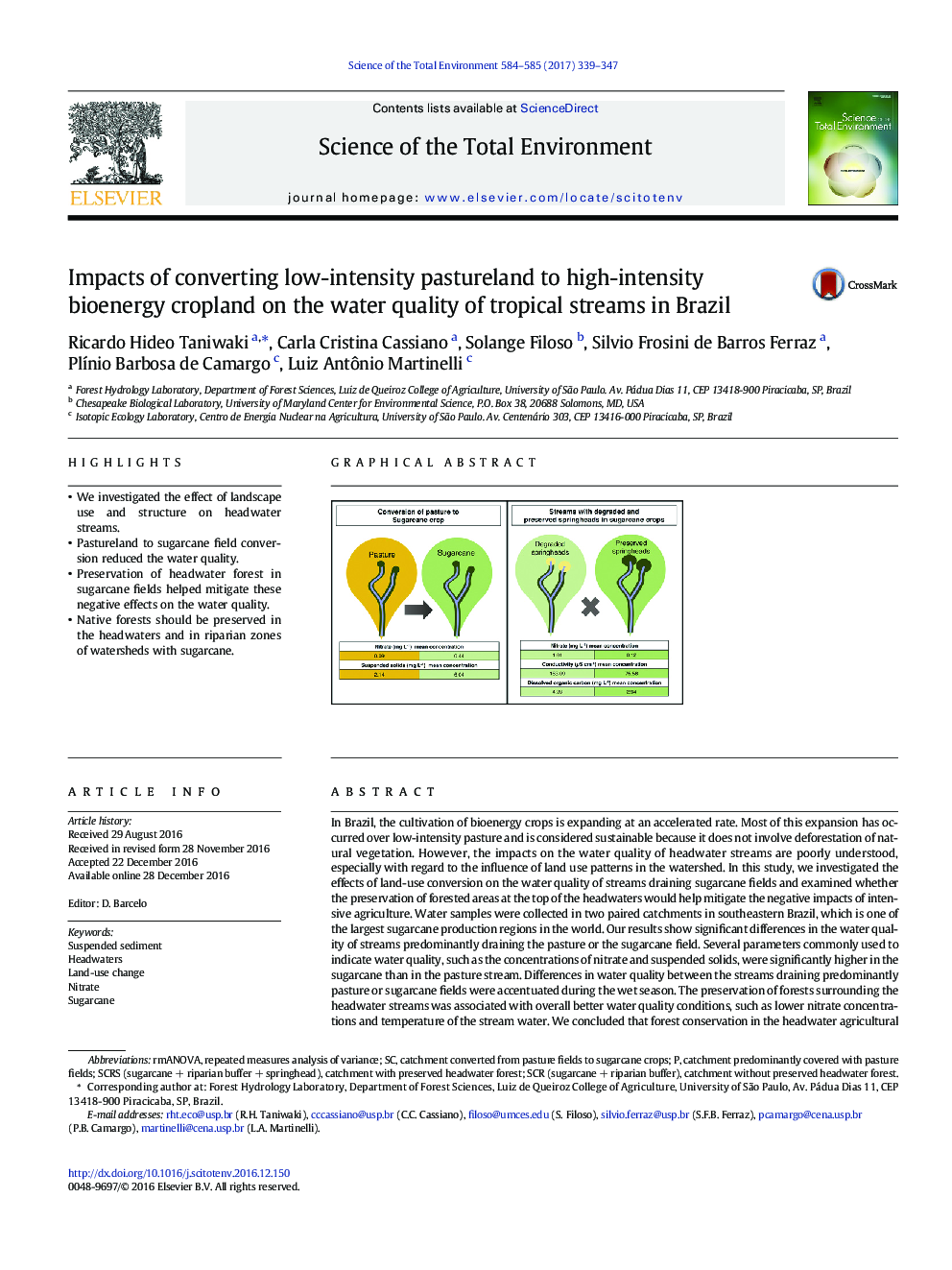| کد مقاله | کد نشریه | سال انتشار | مقاله انگلیسی | نسخه تمام متن |
|---|---|---|---|---|
| 5751875 | 1619708 | 2017 | 9 صفحه PDF | دانلود رایگان |
- We investigated the effect of landscape use and structure on headwater streams.
- Pastureland to sugarcane field conversion reduced the water quality.
- Preservation of headwater forest in sugarcane fields helped mitigate these negative effects on the water quality.
- Native forests should be preserved in the headwaters and in riparian zones of watersheds with sugarcane.
In Brazil, the cultivation of bioenergy crops is expanding at an accelerated rate. Most of this expansion has occurred over low-intensity pasture and is considered sustainable because it does not involve deforestation of natural vegetation. However, the impacts on the water quality of headwater streams are poorly understood, especially with regard to the influence of land use patterns in the watershed. In this study, we investigated the effects of land-use conversion on the water quality of streams draining sugarcane fields and examined whether the preservation of forested areas at the top of the headwaters would help mitigate the negative impacts of intensive agriculture. Water samples were collected in two paired catchments in southeastern Brazil, which is one of the largest sugarcane production regions in the world. Our results show significant differences in the water quality of streams predominantly draining the pasture or the sugarcane field. Several parameters commonly used to indicate water quality, such as the concentrations of nitrate and suspended solids, were significantly higher in the sugarcane than in the pasture stream. Differences in water quality between the streams draining predominantly pasture or sugarcane fields were accentuated during the wet season. The preservation of forests surrounding the headwater streams was associated with overall better water quality conditions, such as lower nitrate concentrations and temperature of the stream water. We concluded that forest conservation in the headwater agricultural catchments is an important factor preventing water quality degradation in tropical streams. Therefore, we strongly recommend the preservation of robust riparian forests in the headwaters of tropical watersheds with intensive agriculture. More studies on the effects of best agricultural practices in bioenergy crops can greatly improve our capacity to prevent the degradation of water quality in the tropical waterways as intensive agriculture continues to expand in this region of the world.
244
Journal: Science of The Total Environment - Volumes 584â585, 15 April 2017, Pages 339-347
